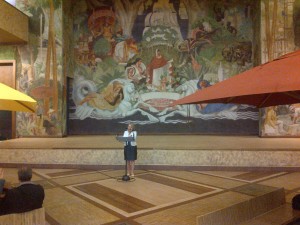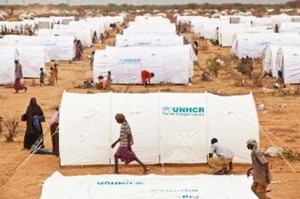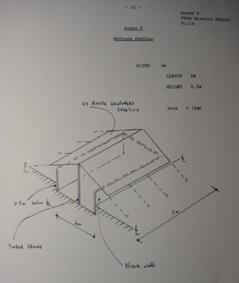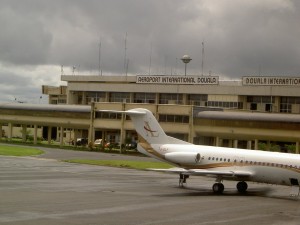Catherine Wihtol de Wenden s’est vue remettre le titre de chevalier de la Légion d’Honneur par Alfred Grosser pour sa brillante carrière de chercheure sur les questions de migration et d’intégration en France et en Europe.
Archives pour la catégorie Actualités
Colloque international UN PAYSAGE GLOBAL DE CAMPS 22, 23, 24 octobre 2014
Avec le soutien de l’Agence nationale de la recherche (ANR MobGlob), de l’Institut de Recherche pour le Développement (IRD) et de la Ville de Paris (Colloques scientifiques internationaux) Organisé autour de la présentation et discussion de l’ouvrage « Un Monde de Camps », sous la direction de Michel Agier (avec la collaboration de Clara Lecadet), ce colloque international invite un riche panel d’intervenants français et internationaux à initier un débat sur les espaces de la mobilité, sur la diffusion de la forme-camp et de ses effets sociaux et politiques, urbanistiques ou architecturaux à l’échelle mondiale.
L’ouvrage Un Monde de Camps, éditions La Découverte. Parution octobre 2014.
Airport ethnography: researching exit and entry controls at the airport in Douala, Cameroon – Fieldwork by Maybrit Jill Alpes (Nov. 2013-Jan. 2014)
From November 2013 to the end of January 2014, my life was to a large determined by the arrival and departure times of Air France flights into the main international airport of Douala in Cameroon. Airports have rhythms and for three months I danced according to the tunes of the work shifts of the Cameroonian police, the constraints of private security staff, and the routines of the French policeman on patrol at the airport.
MobGlob interview of Helene Thiollet for Look Ahead/The Economist
Border control – Q&A
Why migration lags the globalisation of goods, ideas and capital
An interview by Helene Thiollet about migration, borders and governance on the blog of The Economist « Look ahead«
MOBGLOB research at the Middle East Working Group Seminar – European University Institute
Hélène Thiollet presents her paper « Resilient Residents: Immigration and Migration Policies in Saudi Arabia »
European University Institute Robert Schuman Centre for Advanced Studies
Thursday 24 April, 14-16h. – Badia Fiesolana, Seminar Room 2.
This paper focuses on the social, demographic and political changes induced by migration in migrants’ communities settled in the GCC countries or transiting through them. Its main finding is to conceptualize migration as a social transformation process in the Saudi (and GCC) context. It emphasizes 1. the growing importance of long term residence of documented and undocumented migrants, contrary to popular discourses and representation of immigration as a short-term phenomenon. Recent data allow us to discuss the consequences of “incipient diasporas”(Weiner 1986)[1] in the Gulf 2. the fabric of migration policy is the product of domestic and international negotiation between public and private actors, questioning the classical frameworks of analysis of politics in the Gulf context (patrimonial, authoritarian, rentier etc.)
Political and social models of the GCC countries have designed migration as temporary with little of no prospect of legal integration, citizenship and permanent settlement, strongly emphasizing the social and spatial segregation of both categories. Migration management by Gulf states is geared towards “anti integration” policies promoting urban segregation, little access to socio-economic rights and zero access to political rights (Thiollet 2010).
Researchers have emphasized the efficiency of the segregation models, of patterns of social exclusion and xenophobia. But one of the premises of both research and political discourses on migration to the Gulf is that immigrants have very little interaction with their host societies, considering both the policy efforts of the GCC states and ‘the exceptional closure of local societies” (Fargues 2011). Migration theory on the contrary has long been demonstrating the social impact of mobility on both host and home societies, and on migrants communities, looking both qualitatively and quantitatively at the consequences of material, cultural, financial, informational transfers on individuals and groups. Drawing on both quantitative and qualitative data this paper explores the dynamics of social, demographic, political and cultural change induced by long-term sojourn of immigrants in the Middle East with a particular focus on migrants’ communities in the GCC countries.
« Le modèle migratoire méditerranéen dans la tourmente », 26-27 mai 2014 – Colloque organisé par l’Ecole Française de Rome, le CERI (Sciences Po) et l’ANR MobGlob (CERI Sciences Po)
Comité d’organisation : Camille Schmoll, Hélène Thiollet, Catherine Wihtol de Wenden
Ce colloque propose de réinterroger le ou les systèmes migratoires méditerranéens de migration (Pugliese 2002 ; Khadri 2012 ; Wihtol de Wenden 2013), à la lumière de l’évolution des débats dans les études migratoires, et au regard des profonds changements qui ont affecté l’espace euro-méditerranéen durant les cinq dernières années (crises économique et financière sud-européenne, montée du chômage et des xénophobies, printemps arabes, conflits armés en Afrique du Nord et au Proche Orient).
Les modèles migratoires méditerranéens peuvent en particulier être réinterrogés autour des points suivants :
- Les effets de la crise économique sud-européenne du point de vue du ralentissement des flux migratoires et du départ de nouveaux émigrants européens.
- Le système migratoire méditerranéen comme creuset, à l’intersection de différents types de mobilités (retraités : migrations de seniors au soleil, touristes, émigrés de retour « returnees », migrants réguliers et irréguliers, demandeurs d’asile)
- La Méditerranée comme frontière et les lieux de territorialisation de la politique migratoire (îles, espaces maritimes)
- La politique euro-méditerranéenne de coopération en matière de migration: quel rôle pour les marges internes et externes de l’UE ?
- La question de l’asile, rendue encore plus sensible du fait des printemps arabes et des conflits syrien et libyen: quelle place pour les pays du pourtour méditerranéen ?
- La Méditerranée des échanges et des flux : trajectoires migratoires Sud/Sud ; Sud/Nord et Sud/Nord, pratiques et circulations transnationales
- La Méditerranée, entre géographies de la peur (construction sociale de la migration comme question sécuritaire) et géographies du cosmopolitisme (émergence de formes renouvelées de cohabitation et d’hospitalité)
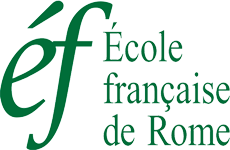
Saudi Migration policy – Article in Saudi Gazette Wednesday, 29 January 2014 – 28 Rabi Al-Awaal 1435 H
Building on a lecture given at the Consulat Français à Djedda on January 21st 2014, the Saudi Gazette has published an interview about my field work in Saudi Sarabia (January 2014).
You can read the full article at Saudi Gazette, interview of Dr Thiollet.
Dossier : frontières et migrations

|

